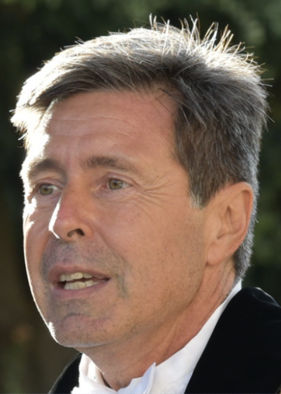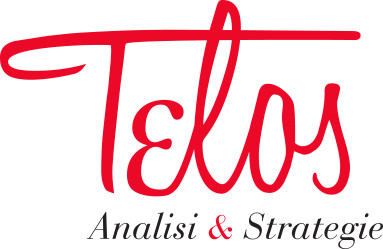January 2023, Year XV, no. 1
Fabio Lucidi
Prorector for Social Growth
“Large, general studies universities are called to offer each student the opportunity to enhance their commitment and characteristics, making them part of great project of social growth.”
Telos: Prorector for the Fourth Mission and Student Relations at Sapienza University. What will your job be?
Fabio Lucidi: In our understanding, large, general studies universities are called to offer each student the opportunity to enhance their commitment and characteristics, making them part of great project of social growth. In this sense, merit is not an absolute value along which to draw up rankings or classifications; rather it entails a willingness to do one’s best to acquire personal resources and transform them into collective value.
The concept of merit, thus interpreted, does not therefore refer to the exclusion of some to the benefit of others, but to the opportunity for everyone to see their contribution highlighted, when this is offered with effort and passion.
This also means that educational institutions need to strengthen individual differences, whether these are differences in gender or in socio-economic, ethnic or migratory background, no matter their orientation, and prevent them from transforming into inequalities.
In the three years that I was the Dean of the Faculty of Medicine and Psychology, I had the opportunity to work on these issues because the Rector established a specific Technical Scientific Committee on diversity and inclusion and entrusted me with coordinating it.
This is what the Rector herself defined as the “Fourth Mission” of Sapienza University. When my term as Dean was over, I was appointed Prorector for the Fourth Mission and Student Relations. It is truly an honour for me and an office I hope to fulfil with dedication and passion.
It regards current, important issues, especially at a university with over 110,000 students, 3,500 professors and researchers covering every discipline and an equal amount of technical, administrative and library staff.
Sapienza is a city within the city, inhabited mainly by young people from 19 to 23 years of age who live in the present while trying to project themselves toward the future. Access to the work world doesn’t just require the disciplinary and technical skills we try to provide through our extremely qualified teaching body; it also requires a whole series of transversal skills.
Language skills – starting with English – and soft skills connected to communication, decision-making, the ability to regulate one’s own behaviour and emotions, the ability to build relationships. The latter are often provided by the family. A modern University is also responsible for enabling students without this family advantage to adequately acquire these transversal abilities. It is a context where we must try to ensure everyone can fully exercise their constitutional rights, starting with the right to study. However, if we also want to foster equality, social mobility, value individuality and differences, then there needs to be a strategy and individuals who commit to carrying it out with passion through dialogue. This is why I have also been appointed to oversee Student Relations, so that we build this path together based on listening to each other and respecting people’s various requests and skills.
You’re fresh from another demanding position as Dean of the Medicine and Psychology Faculty at the same university. Simplifying, eliminating bureaucracy and integrating faculty areas were key concepts in your programme as a candidate in September 2019. Now what do you think as you look back over your term?
It wasn’t easy being the Dean of a Medicine faculty during the pandemic. We had to continue to ensure courses continued even when active exchange between teachers and students in the same space was physically impossible, ensure research continued at a time when labs were inaccessible, ensure patient assistance – the faculty depends on its collaboration with one of the largest university teaching hospitals in the country, the Sant’Andrea University Hospital, at a time when there was one of the largest, global health emergencies in the history of humanity.
We tried, like everyone did, to resist and relaunch. We were forced to digitalise all our systems in just a few weeks, which was facilitated by the fact that we had new premises to use. We had to modify all our procedures so they would resist the huge stress test we had to subject them to. We made the faculty the hub for the building of a system of physical health and mental well-being with a holistic vision. We had to make an effort to facilitate monitoring and assistance with a view to e-health. In this sense, all we did was seize the opportunities hidden within a very tough crisis. We did this by working as a team, where the Dean needed to provide support and assistance to everyone, teachers, students and staff who willingly dedicated their resources and skills to this goal, in terms of research, education and assistance, for example in public hospitals, in university counselling services and other faculty structures.
It isn’t up to me to say whether it went well. All I can say is that I believe this was the most intense and satisfying professional experience of my career. I’m a psychologist, but I had no idea of the challenges I would have to face, nor of how much passion many doctors put into their assistance mission. I’m coming away from it with lots of new acquaintances and, if you’ll allow me to speak on a personal note, a lot more friendships… the kind you build by getting through unexpected difficulties together.
Are politics and the institutions attentive to the needs of the university? What would you ask them for?
To consider University for what it is: the main tool for building an aware citizenry. I have already mentioned the Research and Education Missions assigned to the universities.
They are essential. However, today universities cannot limit themselves to just producing and transmitting information. They must strive to identify and teach how knowledge is selected, the best ways to concretely apply and constantly keep knowledge up-to-date, thereby transforming data and evidences into four distinct forms: “knowledge” understood as such, “knowhow”, “interpersonal skills” and “teaching skills”. Through this transformation, along with the increasingly clear importance of knowledge exchange with local stakeholders, universities are called to contribute by addressing complexity and serving as hubs to foster access to knowledge as one of the building blocks of the right of citizenship.
This process needs to be understood by politics – often too focussed on very short-term goals. It must be funded and made possible. Clearly, it is up to politics to determine what is a priority and urgent. Nevertheless, promoting interest in science, promoting the understanding of scientific culture, encouraging critical and creative thinking, welcoming the diversity of ideas and culture, fostering communication between civil society and research institutions: all these things must be increasingly considered topics of civic and political significance. The National Recovery and Resilience Plan is a great opportunity that needs to be seized by universities. However, it is up to politics to decide if this opportunity is essential to build a knowledgeable society or just something that prevents the creation of stable jobs in science, a prelude to more brain drain.
You’ve had a long career as a scientist with many areas of research. Yet in browsing your CV, it is clear you are particularly interested in sports psychology. Where does this come from and where has it led you?
It comes from a personal passion for sports and the professional idea that the sports context can be a natural lab that provides the basic conditions for extremely difficult behaviour to play out in a real context, that are, however, better controlled than in many experiments.
It has led to a wonderful life of continuous experimentation, to exciting encounters (both with other researchers and with very high-level athletes), to a few, modest personal scientific and applicative contributions and to the conviction that mental processes are determined by complex mechanisms, which aren’t necessarily complicated but are extraordinarily fascinating.
Marco Sonsini
Editorial
Enthusiasm, joy, motivation: this is how Professor Lucidi literally manages to blow away and draw in anybody around him. All topped by his incredible competence in every nook and cranny of university life.
Not for nothing, after being elected Dean of the Faculty of Medicine and Psychology, Rector Polimeni appointed him Prorector of the Fourth Mission and Student Relations.
Our first question for our guest in this January issue of PRIMOPIANOSCALAc was what the “Fourth Mission” is. We admit that, when we read about his new job, the hardest part seemed to be Student Relations, but we changed our mind after his description of the Fourth Mission.
Essentially, Fabio Lucidi’s job will be to address issues of inequality, social mobility and education. Which is no small feat. In the sixties and seventies, they used the term “social elevator”, or when the new generation managed to reach higher social status than the previous one thanks mainly to standard and higher education.
Encyclopaedia Treccani defines the “social elevator” as “the process that enables and fosters change in social status and integration among the different swathes of society.”
In other words, an individual raises their individual and social condition through work, education and the economic growth of a State. However, according to the latest OCSE report “Education at a Glance”, in our country, this elevator is broken.
The majority of Italian parents are even afraid that their kids will not reach their own status and wellbeing. In Italy people’s economic status is closely linked to that of their parents. Again, according to OCSE, it might take five generations for kids born to low-income families to reach middle-income status!
The factors that accumulate from father to son trigger what may be defined as the intergenerational reproduction of inequality. Even small advantages in any of these areas can add up and generate big privileges, huge gaps and significant injustice.
What can we do about it? Study, education is the main answer. But not only that. Lucidi explains that the aim of the Fourth Mission is also to fill another gap as well.
In addition to study, subjective, personal qualities, i.e., soft skills, are more easily developed by kids from better-off families with higher levels of education, who are exposed to intellectually rich social environments, who can afford travel, language study and various educational experiences.
There shouldn’t only be predefined opportunities for a few, nor should positions crystalise only for a few individuals. Anybody who wants to and deserves to should be able to elevate themselves; and it is also the job of the University to ensure this happens.
Maybe today the University is not a powerful enough engine of mobility to counter the widespread effect of inequality, but it is surely the best one we have. The words of the Prof are wonderful and illuminating and we hope you read them in his interview, which concludes with his research and life passion: sports.
“Sports can create hope where once there was only desperation. It is more powerful than governments in knocking down walls,” wrote Nelson Mandela. Perfectly in line with the current task of our man.
As a scientist, Lucidi has always regarded sports with immense interest, convinced that “the sports context can be a natural lab that provides the basic conditions for extremely difficult behaviour to play out in a real context, that are, however, better controlled than in many experiments.”
This month we are launching a new graphic series, and much more, for the 2023 covers of PRIMOPIANOSCALAc. The idea was to create something similar to museum merchandising using the faces of our guests.
Each month will feature a different personalised object featuring our guest’s face in black and white. Our guests will look truly iconic, like the merchandise inspired by the works displayed in museums: the Mona Lisa, the two, chubby cherubs in the Sistine Madonna by Raphael, Van Gogh’s starry sky… And each will become so iconic, they’ll be treated like a pop star, singing on social media. For Lucidi, a big sports fan, we chose a sweatshirt, even his song will be somehow associated with the marathon. Just wait and you’ll see!
Mariella Palazzolo

Fabio Lucidi is the Prorector of the Fourth Mission and Student Relations at Sapienza University of Rome. He began his academic career in 1999 when he became a university Researcher in the Psychology Department of Sapienza University. In 2000 he became Associate Professor in the Department of Psychology and Development and Socialisation Processes at the same University, as well as the head of Sports Psychology Services. Since 2010 he has been a tenured Professor of Psychometrics.
In 2017 he was elected Deputy Dean of the Faculty of Medicine and Psychology at Sapienza and from 2019 to 2022 he was elected Dean of this same faculty.
His research focusses on sports psychology: “Sport is the area I’m most engaged in. I work on Psychometric techniques to promote health.”
He is the author of over 200 scientific publications in international journals.
He is the scientific head of research projects financed by Sapienza University, the Italian Government, the International Olympic Committee and WADA, the World Anti-Doping Association.
He is the director of the book series Psicologia dello Sport.
He is the Past President of the Italian Society of Health Psychology (SIPSIA) and the Italian Psychology Society (SIP).
He was born in Hong Kong but grew up and lives in Rome. He is an enthusiast runner and marathoner and says: “I remember one race where, to keep going, I thought about the finish line, where I would find my daughter and the ice cream we were going to eat together!” His all-time best is 3h 48’. Running isn’t the only sport he does. He also enjoys kayaking and cycling.
He is 57 years old and married with two daughters (To Say Nothing of the Cat!)
Marco Sonsini







SocialTelos